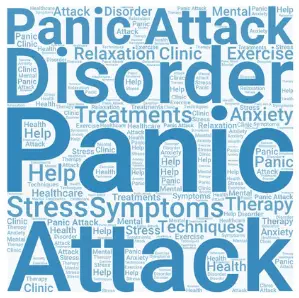There is much debate about whether panic attacks are a disability. Some people argue that they are not a disability because they are not a permanent condition. But others assert that they can be very debilitating. Hence they are a disability. There is no right or wrong answer. But it is important to consider all perspectives when deciding on this issue.

Those who believe that panic attacks are not a disability often point to the fact that they are not a permanent condition. This means that, for the most part, people who experience panic attacks will recover. They no longer have to deal with them. This argument fails to take into account the fact that some people may suffer from chronic panic attacks that never go away. For these individuals, panic attacks can be lifelong and impair their quality of life.
But, those who believe that panic attacks are a disability often cite the fact that they can be very debilitating. This is particularly true for people who experience them in social situations. Panic attacks can make it difficult or even impossible for someone to leave their home, go to work, or interact with other people. In severe cases, they can result in agoraphobia, which is an extreme fear of being in public places. For people with this condition, panic attacks can have a profound and negative impact on their lives.
Panic disorder is a type of anxiety disorder that can result in disability. Unexpected and repeated episodes of intense fear or discomfort, accompanied by physical symptoms such as heart palpitations, shortness of breath, dizziness, or abdominal distress, are some of the symptoms of panic attacks. These episodes can last for minutes or even hours. Specific situations or sometimes even no trigger also can cause panic attacks. People with panic disorder often live in fear of having another attack. They may avoid places where they have had previous attacks. This can lead to significant disruptions in their lives. This can qualify them for disability benefits.
There are many reasons why panic attacks can be disabling to sufferers:
- The physical symptoms of a panic attack can be very intense and overwhelming. This makes it difficult for the person to function in a normal manner.
- The fear and anxiety that accompanies a panic attack can be debilitating. The person may find it hard to concentrate or even think straight.
- Panic attacks can profoundly impact a person’s mood and well-being.
It often leads to depression and anxiety disorders. In short, panic attacks can significantly negatively impact a person’s quality of life.
In conclusion, panic attacks can be very disabling for sufferers. They can cause physical symptoms that are intense and overwhelming, as well as fear and anxiety that can be debilitating. Panic attacks can also lead to depression and anxiety disorders. If you suffer from panic attacks, it is vital to seek professional help. This will help you to manage the condition and improve your quality of life.

